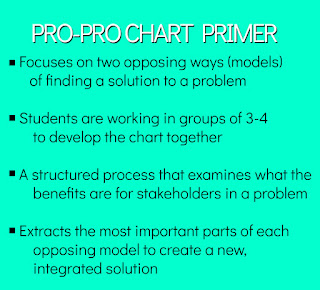Engaging with our PLN
Do you have a Professional Learning Network? Is there a group of educators with whom you enjoy connecting with, who push your own thinking and expose you to new ideas? We like to connect with as many people as we can online. One of those people is Matthew Oldridge, an educator who is currently on secondment to the Ministry of Education. He tweets about mathematics, or education, or pop-culture, or his family. We enjoy his online presence because it isn’t one dimensional, he is great at letting people in and showcasing the fact that yes, he is a human when he isn’t teaching.
Matthew recently posed a series of questions on his blog which he challenged his own PLN to think about and respond to. These are the types of questions that The Shift likes to think about and, by speaking about them, coach others into thinking about them too.
The Shift sat down and talked through each question and have responded to the ones that we felt we had the most to contribute. If anything we says resonates with you, take the conversation online or respond in the comments below.
What has been your most powerful pedagogical moment?

It was probably attending the Deeper Learning Conference. The experience peeled away a lot of the movie magic that was applied in the documentary Most Likely to Succeed. Were students completing high quality projects? Yes. Were they also being taught curriculum in a setting we might recognize? Absolutely. The fact that students were doing both made this moment so powerful. We love teaching students about math and art. We don’t love that we have to take the subject we love to teach about, and more often than not measure that learning through a timed test or static project. We’ve often wanted our students to show us their learning in different ways but were never fully satisfied with the tasks we would give them. Attending Deeper Learning and visiting High Tech High convinced us that projects that integrate learning across subjects, that force students to dive deeper into their learning, and have students exhibit their learning in public ways were possible. It’s something we would love to help other teachers try.
What changes do you want to see in curricula around the world?
The greatest overall change we hope to see change in curricula is one that values depth over breadth. There can be a great deal of stress and anxiety that comes with trying to cover all the topics in a curriculum so packed with content that they have no time to go deep on anything. If curricula had less specific content to cover, what could that space allow?
It could allow for students to go deep with their learning. Removing that stress of breadth of curriculum would allow educators greater flexibility to bring students as the leader in the curriculum
Going deep with curriculum would enable bringing student voice and student identity. Simply put, not cramming in content would allow flexibility and space for students to see themselves reflected in the curriculum.
That space would give time and space to uncovering curriculum from multiple viewpoints. Understanding and building empathy for many points of view, so that one story doesn’t become the only story.
What do you think is the purpose of education in this day and age?
The world is changing at a blistering speed and the model of education we need to prepare students for that future can no longer rely on developing young people for a singular, defined career. We don’t know what the world will look like when these learner will reach adulthood, the purpose of education should be to do a better job of preparing for a changing world, rather than a defined one. How might we empower students to find their passion? What opportunities can we provide to students so that they are motivated to learn? Education should foster creative, problem seeking, collaborative, empathetic citizens that can adapt to our changing world.
What would you like to see change the most about education?
Let’s start with students. Like we said in the previous question, the change we would like to see for students is education that puts students in the drivers seat, with students empowered to find their passion. If we can empower students, they will feel their voice is heard and reflected in their learning. A single story is replaced with many stories and many voices and with that students we feel more ownership over their own learning.
For educators, the change we would most like to see is a community of sharing, supportive educators, with silos created by walls, schools, departments all melted away. Education is stronger when it is done together. No one should ever feel that they are done learning or growing and everyone needs a coach or mentor. Our hope is that, moving forward, education becomes a much more collaborative act.

On both of these fronts, we see signs of hope. Through maker education, equity work, design thinking and the thinking classroom model, we see a shift towards students uncovering the curriculum through play rather than being treated like empty vessels to be filled with content. On the educator front; organic professional learning networks, the twitterverse, and online sharing are creating cracks in those solitary silos of teaching. We’d love to normalize educators being in each other spaces, co-teaching and learning together. After all, how can we expect students to learn how to work together as adults, if they never see other adults collaborating and problem solving together.

Comments
Post a Comment